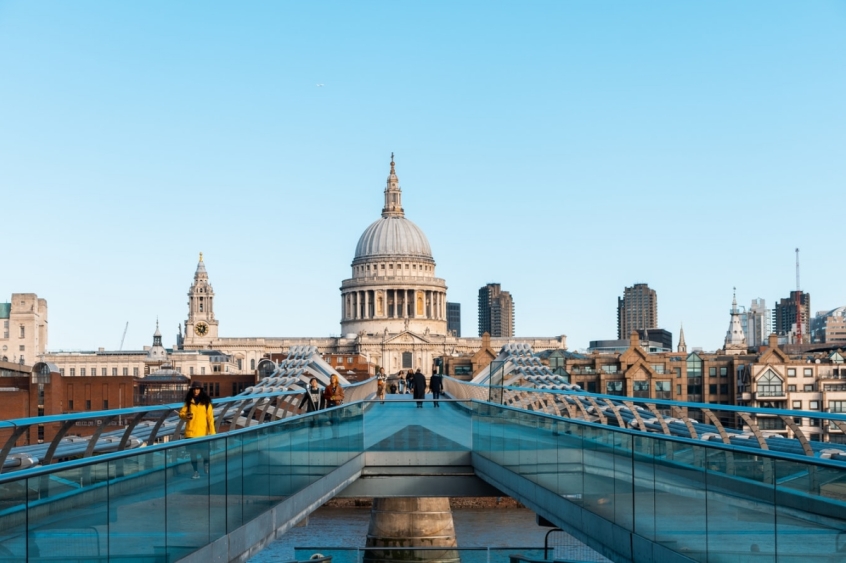
The Church of England is racist. These are not my words; they are the words of Archbishop Justin Welby who last year told the Church of England's General Synod, "I'm ashamed of our history and I'm ashamed of our failure. There is no doubt when we look at our own Church that we are still deeply institutionally racist." But is he right? Does this apply to other churches too? And how should we deal with racism?
The Anti-Racism Taskforce of the C of E last week published an extraordinary report called "From Lament to Action". However noble its intentions, there are a number of things about this report that make me uncomfortable. For one thing, it lumps all non-white people together, calling them UKME (United Kingdom Minority Ethnic). It also demands that they make up 30% of leadership positions in the Church and says that every diocese will have to appoint a 'racial justice officer' who must report to a 'racial justice unit'.
The recommendations may be well-meaning in seeking to address the injustice of racism in the Church, but my trouble with them is that they are just critical race theory dressed in theological clothing. If I'm right, then I fear they will bring division rather than unity, and water down Christian doctrine, furthering the demise of the Church of England.
The release of the Church of England's report into racism comes not long after the report from the Commission on Race and Ethnic Disparities, chaired by Tony Sewell. This report, which was not well-received by some, warned about accusing organisations of institutional racism without proper evidence – a point I agree with him on.
In an altogether different response to the Sewell report, the London College of Bishops condemned it for creating "confusion, anger and despair". I would argue that, while unpopular, Sewell's report was based on facts that, however difficult or uncomfortable, ought to be engaged with, while the bishops' response was based on feelings and ideology.
The Sewell report was written by 11 Commissioners, 10 of whom are people of colour. They include Mercy Muroki, a talented social policy researcher and commentator, who told Andrew Neil in a Spectator interview that the statistical data suggests there are other factors than race in attainment differences.
I hate the judging of people by the colour of their skin. It is a sin and we should clearly say so. But I fear that judging by skin colour is precisely the method of the new critical race theory dogmas of the London bishops – every single one of whom is white. By their own dogmas, they have white privilege and belong to a racist church. Yet they so easily write off the views of Mercy and her colleagues. Why? Are they not setting themselves up as 'white saviours'? Are they not being racist themselves – judging others by the colour of their skin?
Where this leads can be seen in the publication by SPCK of the book, A Rhythm of Prayer: A Collection of Meditations for Renewal, edited by Sarah Bessey. The 'Prayer of a Weary Black Woman' by Dr Chanequa Walker-Barnes includes the following statements:
"Dear God, Please help me to hate White people. Or at least to want to hate them. At least, I want to stop caring about them, individually and collectively. I want to stop caring about their misguided, racist souls, to stop believing that they can be better, that they can stop being racist."
"My prayer is that you would help me to hate the other White people – you know, the nice ones ...The Fox News-loving, Trump-supporting voters who 'don't see colour' but who make thinly veiled racist comments about 'those people'. The people who are happy to have me over for dinner but alert the neighbourhood watch anytime an unrecognised person of colour passes their house."
"Lord, if you can't make me hate them, at least spare me from their perennial gaslighting, whitemansplaining, and White woman tears."
Dr Walker-Barnes has defended her prayer, as have Bessey and the other contributors to the book, but I remain unconvinced because whatever the motivation or context behind it, can you imagine what would have happened if it had said something like "Dear God, please help me to hate black people." There would be immediate bans on Facebook, Twitter and Amazon, prosecutions and of course the London College of Bishops would be up in arms, repenting on behalf of all of us. What on earth is a supposedly Christian publisher doing publishing what I can only describe as hate? Why do Amazon, who say they ban hate speech books, continue to promote it? And why the silence of the bishops?
There may be historic issues of hatred both within and outside the Church that need to be addressed, but surely there is a better way than critical race theory? I believe there is and that it is also a more Christian way: I wish that those who profess to be Christian but who judge people by the colour of their skin would follow Christ, and not the cultural theories of the Zeitgeist (whether right or left).
The Bible's teaching is not difficult. There is much that could be said, but let's just take four passages teaching fundamental truths:
Genesis 1:26-27 teaches us that all human beings are made in the image of God. Skin colour has nothing to do with this fact. There is no such thing as 'favoured races' (as per Darwin).
Acts 17:26 tells us that from one man God made all the nations and that we are all God's offspring.
In the Church there is neither Jew nor Gentile, Barbarian or Scythian, for we are all one in Christ Jesus (Galatians 3:28 and Colossians 3:11).
No racist would be happy in heaven because it is the place where there are those from every nation, tribe, people, and language (Revelation 7:9).
To discriminate on the basis of skin colour is just sin, plain and simple. Yes, racism does exist - even in the Church - and it must be dealt with and repented of like every other sin. But it will not be dealt with by accepting critical race theory, ignoring the Bible, and engaging in a bout of self-flagellation and virtue signalling.
If Christians would just follow Christ as Lord, believe, and practise the Bible, then we wouldn't get into the confused mess that the Church of England now seems to be mired in. If the bishops went back to the Bible and looked to Christ for deliverance from their racism, rather than accepting the dogmas of critical race theory, I'm sure that the Church would be ransomed, healed, restored and forgiven!













